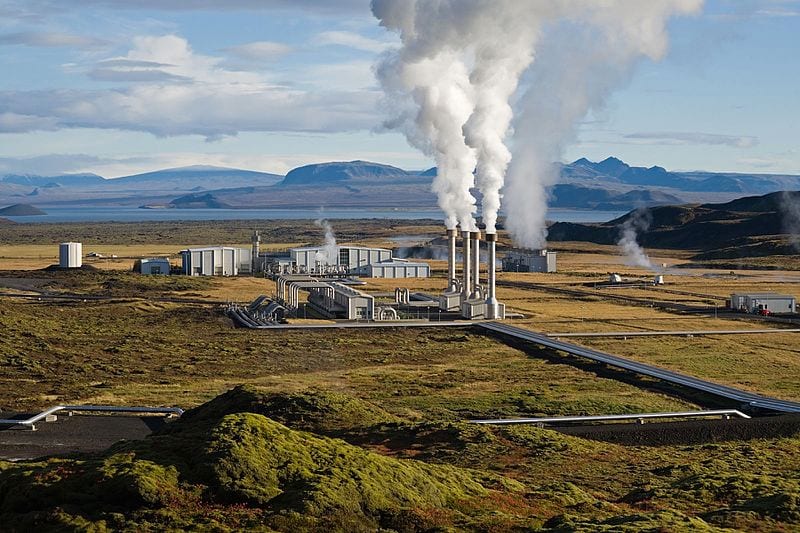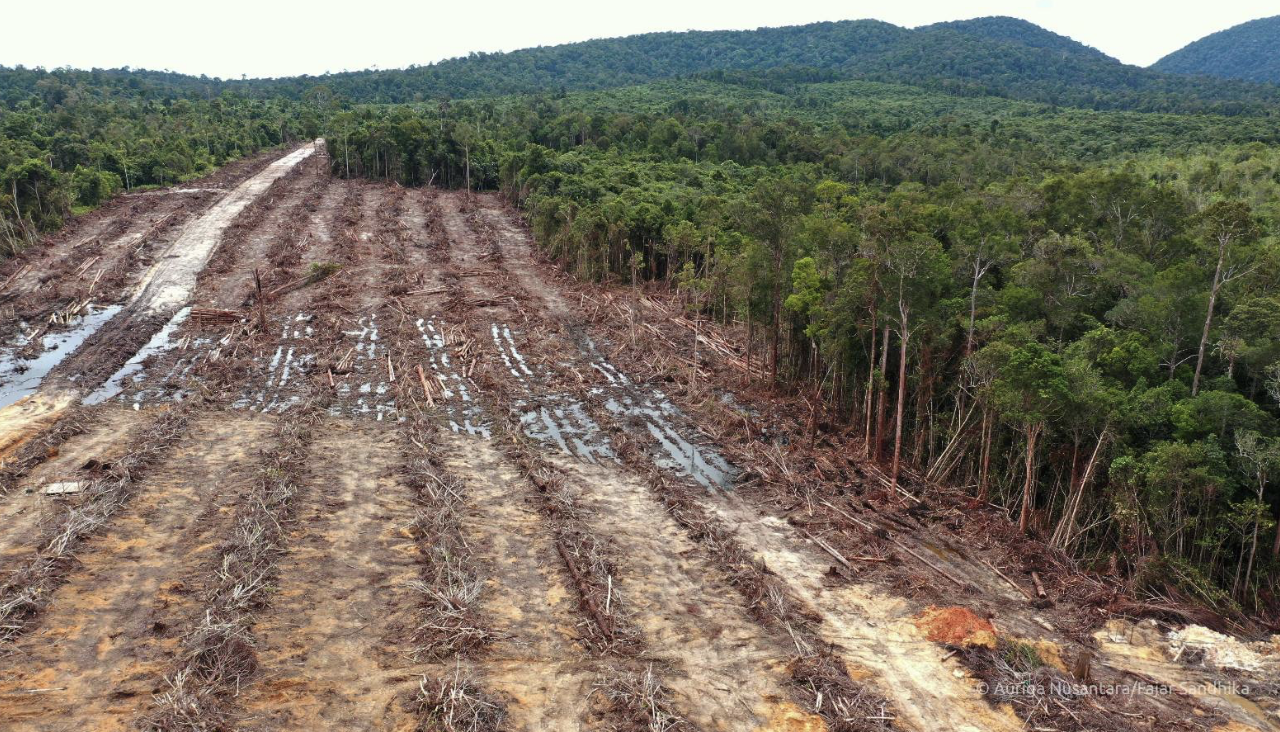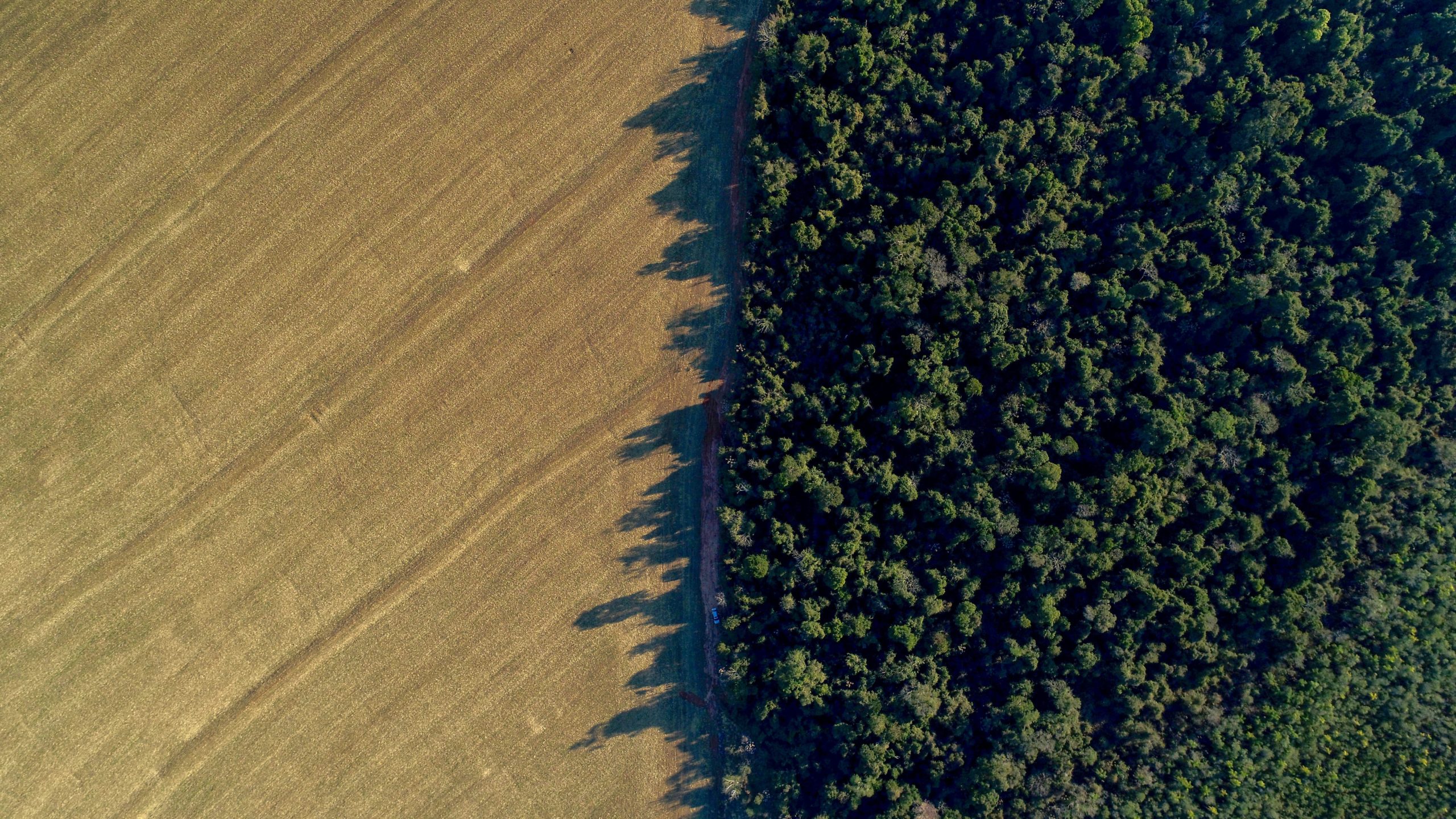
NGO Joint Statement: Co-firing of Biomass in Coal Plants or Conversion of Coal Power Plants to Dedicated Biomass Power Plants is Greenwashing
Biomass accelerates climate change and destroys forest ecosystems
11 April 2023
In Japan, the co-firing of biomass in coal power plants and conversion of coal-fired power plants to biomass are currently taking place at a rapid pace. Already 31 coal-fired units, or about half of the coal-fired power plants of major power utilities, are co-firing with biomass.[1] At least 40 of the renewable energy feed-in-tariff (FIT) approved biomass power projects are at coal power plants, and 35 of these plants are designated as “inefficient” (sub-critical or super-critical).[2] Biomass co-firing for industrial self-generation at in-house coal-fired power plants and other power plants is also part of Japan’s “Green Transformation” (GX) policy.[3]
Wood pellets are one of the primary biomass fuels used for biomass co-firing at coal plants. With the increase in biomass power generation under the FIT program, imports of wood pellets have increased 61-fold over the past decade to approximately 4.41 million tons in 2022.[4] As the power generation capacity of coal-fired power plants is generally much larger than that of dedicated biomass power plants, further increases in wood pellet imports are expected as biomass co-firing is promoted at coal-fired power plants.[5] This increase in demand for wood pellets is nothing short of an additional burden on forests, whether directly or indirectly.
The undersigned environmental NGOs working on climate change and forest issues, oppose biomass co-firing and the conversion of coal power plants to dedicated biomass power plants for the following reasons:
- Accelerates climate change:
- Burning biomass emits CO2:
- Biomass power generation is thermal power generation, and the combustion of biomass fuels emits large amounts of CO2 into the atmosphere. Even though the carbon emission coefficient of wood is greater than that of coal,[6] the Japanese government considers it to be “carbon neutral” and does not account for CO2 emissions from combustion.[7] Moreover, when forests are cleared to produce biomass fuels, the carbon that the forests have stored in the trees and soil over a long period of time is released into the atmosphere. There is no guarantee that cleared forests will recover to their original state, and even if they do, it will take decades to centuries to completely restore the CO2 released into the atmosphere. In addition to this, CO2 derived from fossil fuel use is generated at each stage of harvesting, processing, and transportation. Japan relies on imports for most of its wood pellets,[8] which emits large amounts of GHGs during transportation. To regard biomass power generation as “carbon neutral,” ignoring the CO2 emissions throughout its lifecycle, the years required for forests recovery and the possibility that forests will not recover, is a great risk that will accelerate climate change.
- Prolonging the life of coal-fired power stations:
- In order to meet the Paris Agreement’s 1.5 ℃ target, OECD countries need to phase out coal-fired power by 2030. However, Japan’s Ministry of Economy, Trade and Industry (METI) uses a formula that deducts the biomass inputs for co-firing from coal inputs, which enables inefficient coal power plants to appear efficient and thereby extend their lives.[9]
- An expert has estimated that the CO2 emission coefficient for a coal-fired power plant without biomass co-firing is 0.84kg-CO2/kWh, while it increases to 0.85kg-CO2/kWh when a coal-fired plant with 38% power generation efficiency co-fires 5% biomass.[10] In addition, the conversion or retrofitting of coal-fired power plants to dedicated biomass combustion is being considered,[11] in which case the CO2 emission coefficient would be 1.03 kg-CO2/kWh.
- Burning biomass emits CO2:
- Destroys forest ecosystems:
- Prolonging the life of coal-fired power stations:
- Most of the woody biomass fuel used for large-scale biomass power generation as well as biomass co-firing coal-fired power generation is imported from Southeast Asia and North America.[12] Future attempts to supply large quantities of biomass fuels will increase pressure for deforestation. The impacts caused by biomass fuels production on ecosystems, such as deforestation, forest degradation, and biodiversity loss, is immeasurable. Cases have been reported of natural forests, including primary forests in North America, being cleared to produce woody biomass fuels. It is not easy for destroyed forest ecosystems to restore their function, and it is impossible for them to recover to a qualitatively equivalent ecosystem. The guidelines for developing project plans under the FIT subsidy program do not have clear standards for the sustainability of woody biomass fuels, and any such standards are not applied to non-FIT biomass power generation. Biomass power generation threatens ecosystems and biodiversity, and undermines the very concept of renewable energy, which is intended to reduce the burden on the environment.
- Prolonging the life of coal-fired power stations:
Hereby, we urge the Japanese government to take following measures:
- Achieve a coal exit as soon as possible, regardless of biomass co-firing.
- Do not support biomass co-firing or dedicated biomass power plants.
- Exclude biomass power generation that uses fuels other than waste from the definition of renewable energy. and do not provide subsidies or other support.
- Require that CO2 emissions from biomass combustion be accounted for at the power plant level.
- Count CO2 emissions from biomass combustion by the consuming country and incorporate this into their carbon accounting.
Signatories (90 organizations)
|
Friends of the Earth Japan |
Japan |
|
Greenpeace Japan |
Japan |
|
HUTAN Group |
Japan |
|
Kiko Network |
Japan |
|
Global Environmental Forum |
Japan |
|
Japan Tropical Forest Action Network |
Japan |
|
Istitute for Sustainable Energy Policies |
Japan |
|
Japan Center for a Sustainable Environment and Society |
Japan |
|
Climate Action Network Japan(CAN-Japan) |
Japan |
|
Citizens Alliance for Saving the Atmosphere and the Earth (CASA) |
Japan |
|
A SEED JAPAN |
Japan |
|
350.org Japan |
Japan |
|
Forests, Climate and Biomass Working Group – Environmental Paper Network |
International |
|
Mighty Earth |
USA |
|
350 Eugene |
USA |
|
350 Triangle |
USA |
|
AbibiNsroma Foundation |
Ghana |
|
Australian Forests and Climate Alliance |
Australia |
|
Biofuelwatch |
UK/USA |
|
Blue Dalian |
China |
|
Castlemaine Residents Against Biomass |
Australia |
|
Center for Biological Diversity |
USA |
|
Central California Environmental Justice Network |
USA |
|
Coast Range Association |
USA |
|
Coastal Plain Conservation Group |
USA |
|
Comite Schone Lucht | Clean Air Committee NL |
Netherlands |
|
Community Partners Across the South |
USA |
|
Conservation North |
Canada |
|
Consumers’ Association of Penang |
Malaysia |
|
De Bomenbond |
Netherlands |
|
De Klimaatcoalitie |
Netherlands |
|
Doctors and Scientists Against Wood Smoke Pollution (DSAWSP) |
USA |
|
Dogwood Alliance |
USA |
|
Earth Action, Inc. |
USA |
|
Earth Neighborhood Productions |
USA |
|
EARTHDAY.ORG |
USA |
|
EDSP ECO |
Netherlands |
|
Endangered Species Coalition |
USA |
|
Environment East Gippsland inc |
Australia |
|
EPIC- Environmental Protection Information Center |
USA |
|
Federatie tegen Biomassacentrales |
Netherlands |
|
Fern |
EU |
|
FIAN Sri Lanka |
Sri Lanka |
|
Forest Watch Indonesia |
Indonesia |
|
Forum Ökologie & Papier |
Germany |
|
Friends of the Clearwater |
USA |
|
Friends of the Earth US |
USA |
|
Gippsland Environment Group |
Australia |
|
Global Justice Ecology Project |
USA |
|
Great Old Broads for Wilderness, Cascade-Volcanoes Chapter |
United States |
|
Green Cove Defense Committee |
USA |
|
Green Longjiang |
China |
|
Green Snohomish |
USA |
|
Himalaya Niti Abhiyan |
India |
|
Hunter Knitting Nannas |
Australia |
|
Independent Forestry Monitoring Network (JPIK) |
Indonesia |
|
John Muir Project |
USA |
|
Kaoem Telapak |
Indonesia |
|
Kitsap Environmental Coalition |
USA |
|
Landelijk Netwerk Bossen- en Bomenbescherming |
Netherlands |
|
Leefmilieu |
Netherlands |
|
Maíra Institute |
Brazil |
|
Natural Resources Defense Council |
USA |
|
Nature Nova Scotia |
Canada |
|
NC Climate Solutions Coalition |
United States |
|
No Electricity from Forests |
Australia |
|
Ole Siosiomaga Society Incorporated (OLSSI) |
Samoa |
|
Pakaid |
Pakistan |
|
Partnership for Policy Integrity |
USA |
|
Pivot Point |
USA |
| Fridays For Future Sendai | Japan |
|
Profundo |
Netherlands |
|
River coalition |
Czech Republic |
|
Sahabat Alam Malaysia (Friends of the Earth) |
Malaysia |
|
Save Estonia’s Forests (Päästame Eesti Metsad) |
Estonia |
|
Scholar Tree Alliance |
China |
|
Snow Alliance |
China |
|
Solutions for Our Climate |
South Korea |
|
South East Region Conservation Alliance (SERCA) |
Australia |
|
Southern Environmental Law Center |
USA |
|
Spruill Farm Conservation Project |
USA |
|
Southern Forests Conservation Coalition |
USA |
|
Stand.earth |
Canada |
|
Standing Trees |
USA |
|
Sunflower Alliance |
USA |
|
The Corner House |
UK |
|
Thurston Climate Action Team |
USA |
|
Trend Asia |
Indonesia |
|
Utah Physicians for a Healthy Environment |
USA |
|
Wild Nature Institute |
USA |
|
WOLF Forest protection movement |
Slovakia |
[1] The Ministry of Economy, Trade and Industry (METI), Outline of Interim Report of the Working Group to Study Coal-fired Power Plants, p.27, <https://www.meti.go.jp/shingikai/enecho/denryoku_gas/denryoku_gas/sekitan_karyoku_wg/20210423_report.html>
[2] Prepared by FoE Japan based on the data from the website of the Agency for Natural Resources and Energy and the database of Japan Beyond Coal (See Appendix 1)
[3] METI, ‘Embodiment of Policy Initiatives to Realise GX’, p.29, p.31, p.33 <https://www.meti.go.jp/shingikai/sankoshin/sangyo_gijutsu/green_transformation/pdf/011_01_00.pdf>
[4] The Ministry of Finance, ‘Trade Statistics’ (See Appendix 2)
[5] J-Power, a major Japanese coal-fired power utility company, and Enviva, a world leading wood pellets manufacturing company in the U.S., signed a memorandum of understanding to jointly establish a system producing and supplying 5 million tons of wood pellets annually. <https://www.jpower.co.jp/english/news_release/pdf/news211117e.pdf>
[6] Center for Global Environmental Research, National Greenhouse Gas Inventory Report of JAPAN 2022, p.3-16 <https://www.nies.go.jp/gio/archive/nir/jqjm10000017uzyw-att/NIR-JPN-2022-v3.0_GIOweb.pdf>
[7] The GHG Protocol and SBTi, which are the global standard for corporate GHG emissions calculation and reporting methods, require that CO2 emissions from biomass used for energy to be reported as corporate emissions.
- i) World Business Council for Sustainable Development, World Resources Institute, ‘ The Greenhouse Gas Protocol -A Corporate Accounting and Reporting Standard, Revised Edition’ , p.63, <https://ghgprotocol.org/sites/default/files/standards/ghg-protocol-revised.pdf>
- ii) Science Based Targets Initiative, SBTI corporate net zero standards, p.24 <https://www.env.go.jp/earth/ondanka/supply_chain/gvc/files/tools/Net-Zero-Standard_v1.0_jp.pdf>
[8] The Ministry of Finance, ‘Trade Statistics’ and the Ministry of Agriculture, Forestry and Fisheries, ‘Survey of Production Statistics on Special Forest Products’ (See Appendix 3)
[9] METI, Outline of Interim Report of the Working Group to Study Coal-fired Power Plants, p.1, <https://www.meti.go.jp/shingikai/enecho/denryoku_gas/denryoku_gas/sekitan_karyoku_wg/20210423_report.html>
[10] Global Environmental Forum, Reference ‘CO2 emissions from biomass power plants’ provided at the webinar ‘In the shadow of “Carbon Neutral” -CO2 emissions from biomass power generation and coal co-firing’, p.6, <https://www.gef.or.jp/wp-content/uploads/2022/12/bbd4731754105f73e348ee35cca7119c.pdf>
[11] METI, Reference 4 ‘Securing Investment in Power Sources’, p.28 <https://www.meti.go.jp/shingikai/enecho/denryoku_gas/denryoku_gas/seido_kento/061.html>
[12] The amount of waste biomass in Japan is limited and most of it has already been used.


